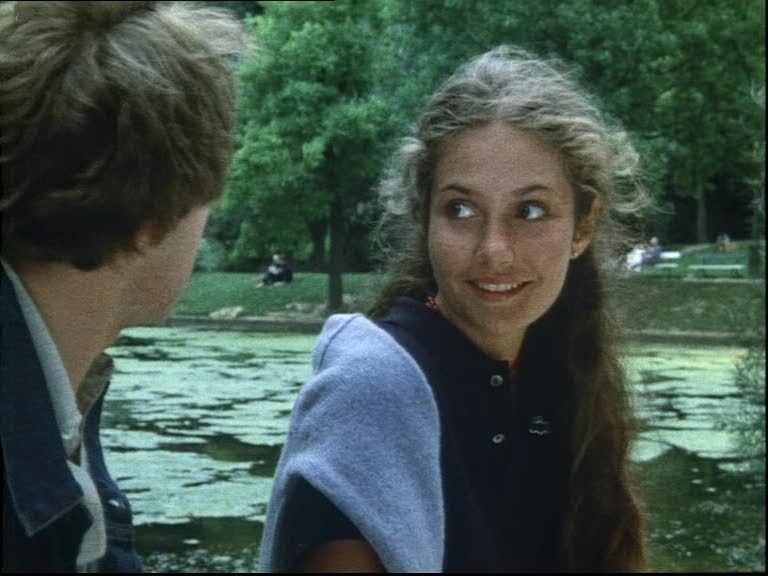Well, to begin with, we never meet the aviator’s wife. We hear a lot about her, and we meet a mysterious blond woman who seems, for an afternoon, as if she might be his wife, but in the end the wife never turns up. She nevertheless causes a lot of unhappiness for the young hero of Eric Rohmer’s new film, and teaches us the following lesson: It is enough to be unhappy about what we already know, without also being unhappy about what we only surmise.
“The Aviator’s Wife” is like such earlier Rohmer films as “My Night at Maud's,” “Claire's Knee” and “Chloe in the Afternoon.” It consists of a carefully -observed slice of life, containing lessons on human nature. Like those films, particularly the last two, it also contains a wonderful, quiet wit, and a view of its characters that could be called affectionate anthropology,
Another lesson this time might be: What fools we are when it comes to love! Or, more properly, what fools others are, but what tragic heroes we are, when it comes to love. The movie’s story is very complicated, but not needlessly so, since it studies the labyrinths we can create with jealousy. It might be fun to take a quick trot through the maze:
The hero of the film is a 20-year-old postman who is in love with a 25-year-old woman. He works all night, she doesn’t. Right away, they have problems. One morning, he arrives early at her apartment to see another man leaving. He knows that this man once had an affair with his girl. What he doesn’t know is that the man arrived at the apartment only moments earlier, to break up with the woman for once and all. The man Is a pilot, and he has just explained that he will be staying with his wife after all, since she is pregnant. She is the famous “aviator’s wife” — if, indeed, she exists.
Soon after, the hero jealously accuses his lover of having spent the night with the other man. She refuses to explain her behavior. They split. The kid dozes off In a cafe, wakes up, suddenly spies the other man (with a blond woman — the wife?) and follows them. To help with his cover, he picks up a 15-year-old girl he’s seen on a bus. She agrees to play along with the game.
After following the other couple for awhile, the hero gets into a long talk with the girl. Then he goes to his lover’s house and has a long talk with her, punctuated with tears. The truth about the previous lover emerges. At the end of the film, the young man is on the street again, following someone again: It is, quite simply, his choice in life to be on the outside looking in.
That’s the story. It reveals little of the texture of this film, which Is about how goofy, sad and driven we can be, especially when our hearts are fueled by self-made loneliness. There’s a lot of talk in this movie, as much as in any film since “My Dinner With Andre” (a title with a sly aside to “My Night at Maud’s”). There needs to be a lot of talk, because “The Aviator’s Wife” isn’t about actions but about reactions, speculations, false leads, hurtful suspicions and romantic insecurity. We need to live within these weaknesses for a time in order to understand them.
The whole movie is acted in a straightforward, unaffected way. The hero (Philippe Marlaud) doesn’t snivel and pine; his jealousy is frank and up front. His lover (Marie Riviere) is lonely and weary, but deliberately not tragic. The young girl from the bus (Anne-Laure Meury) is a small treasure, fresh and cheerful, revealing aspects of herself that she knows the boy Is not yet ready to observe. The ending, in which the hero chooses alienation over the simplicity of accepting happiness, is sad, and sadder still in that we immediately identify with it.



















